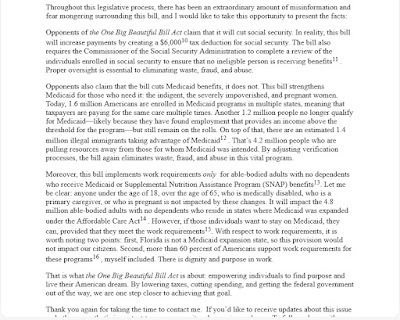 |
| From the Booknook Web Site |
Is it possible to grow close to a person while never
having met her, or even spoken to her?
Yes, I had that kind of relationship with Kimberly
Hitchens, the proprietor of Booknook.biz, a digital book conversion company, one
she developed over the years.
She (and her staff) was the midwife to my three books, which
I am informally calling the “Explaining It” trilogy. My final book is now being readied for
printing, with an eBook to follow a few months later. It is a memoir, Explaining It; A Life Between the Lines. Details will follow in these pages soon.
Tragically, “Hitch” passed away while we were working on
this project.
She felt like a best friend, despite the fact that we
hadn't met. Both of us were from the
production side of publishing, but from different eras and our extensive emails
over the years mused about the business.
Our digital epistolary relationship revealed her to be smart,
idiosyncratic, and professional, dedicated as much to her staff as to her
clients. She knew her stuff and her
enthusiasm for all aspects of pre-press production was clearly abundant. Hitch was a joy to work with.
Ironically, the only time our relationship hit a speed
bump was concerning this memoir. Their new
system was different than the one when I published Explaining It to Someone; Learning from the Arts five years
earlier.
I don’t easily adapt to change and I incorrectly
attributed my difficulty to perhaps they were using AI. Hitch really took me to the woodshed on
that. Mea culpa I cried!
Although she did say AI technology might account for some
increase in the volume of projects they were handling and they were slammed
with work at the same time my book was submitted. As a peace offering I said my project was not
urgent so if she had to put it in a lower priority queue, I’d understand.
Her reply was long and detailed mostly about the ton of
imaging and digital conversion software and AI’s impact there, revealing an
instinctive deep knowledge about each, a foreign language to me. But then, as far as my offer was concerned,
here’s Hitch-speak at its finest:
In a billion years,
Robert, I would NOT move you back in the queue! NONE of our repeat, much-loved
real clients go there. NOPE, not happening. That's the very last thing I'd do.
All our repeat,
solid, trade-pubbed clients are where they should be, queue-wise. Not to be a
writing snob (moi?! NEVAH!), but our real author clients go where they should,
and if I'm moving anybody down the queue--which I do, truly, try not to ever
do; I do try to remain FIFO--it's the AI clients.
BUT, that's not to
say that I don't truly appreciate your sentiment. I do. It's greatly
appreciated.
Have a nice
Mother's Day! I mean...well, you know
what I mean.
H
That was the day before Mother’s Day, less than a month
before she died. I knew she had some
health issues, but “NEVAH” anything life threatening.
So on Mother’s Day I replied:
Hitch.
That’s one hell of an email. I
used to have an employee, Carolyn, who started as my secretary but as soon as I
got my hands on an Apple II in 1979 (and could do my own typing -80 WPM BTW-via
a primitive word processor) I made her my administrative assistant. Frankly, she tried to outwork me, always to
the point of exhaustion— this is how the story relates to you. I saw a cartoon in the New Yorker which I had
framed to hang over her desk. It
pictured a young woman draped over her typewriter, clearly exhausted, with the
caption “God, I love this job.”
Hitch, you protest too much. You love your work. It doesn’t get much better than that.
Remind me to buy a copy of YOUR
memoir. You are a spontaneous writer and
the stories you could tell.
In any case, indeed Happy Mother’s
Day. Yours, Bob
Where she found the time for our personal, behind the
scenes email, I have no idea. There were
so many over the years that did not necessarily relate to my projects.
Her last email to me was in reply:
Mon, May 12 at
11:02 AM
LOL...Bob:
Well, there are
days when, yes, I do love my job--but there are the others, too. Thanks for the kind words.
Ye Gods, the Apple
II. We started out a) Heathkit!
(yowzers) and then b) the 8080 (which was really the 8088). Yup, ye olden IBM 8088 which was...when, '81?
Yes, I think that's right.
My Bob--My Robert,
to whom I am wed--built our first few computers and that was the take-off for
us. It helped me conquer the pink ghetto, in those early years. I was the only
one that knew how to use the then-word-processor, which was WordStar and then
CPM whatsits and I was the QUEEN of the first Lotus 123, which allowed some of
us to conquer the world. Ah, the good old days.
Computers, in many ways, allowed women to break out.
LOL
Hitch
The reflective and self-congratulatory tone (albeit well
deserved), was unusual for Hitch. I
replied, trying to do her one better, with my early knowledge of Visicalc (the
precursor of Lotus 123) as well as PFS software which was an early word
processing / data base software, each of these requiring dual floppy disk
drives on the Apple II, and then my pride about being involved in the precursor
of the Web, The Source, dialing up at 300 baud.
I thought for sure she would laugh at that, but, uncharacteristically, I
heard nothing. I was stunned to learn
that she passed away after a brief hospitalization on June 7.
RIP Dear Hitch










